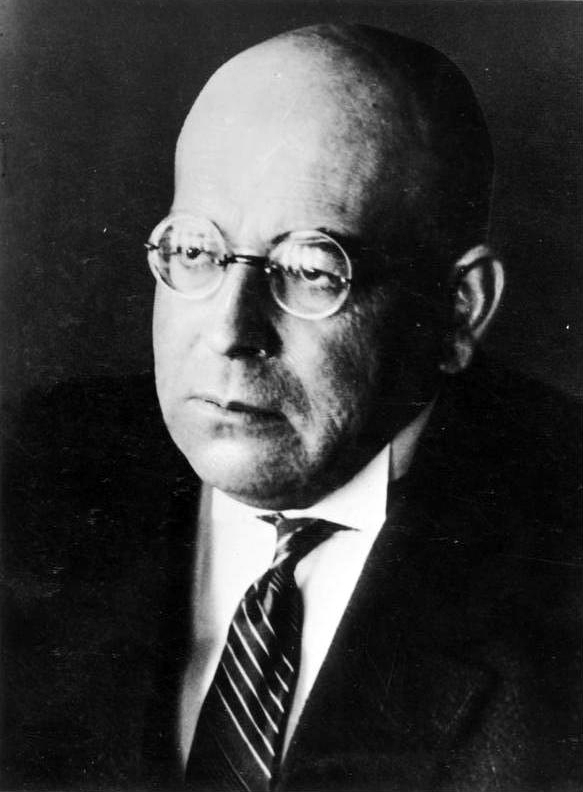Źródło: Człowiek i technika; w: Oswald Spengler: Historia, Kultura, Polityka, tłum. Andrzej Kołakowski, Państwowy Instytut Wydawniczy 1990.
Oswald Spengler słynne cytaty
Źródło: Jerzy Adamski, Historia literatury francuskiej. Zarys, Wrocław 1989, s. 150.
Źródło: Lata Decyzji, tłum. Bogdan Baran, Aletheia 2015.
„Chrześcijańska teologia jest babką bolszewizmu.”
Źródło: Lata Decyzji, tłum. Bogdan Baran, Aletheia 2015.
Oswald Spengler: Cytaty po angielsku
The Decline of the West (1918, 1923)
Kontekst: The press to-day is an army with carefully organized arms and branches, with journalists as officers, and readers as soldiers. But here, as in every army, the soldier obeys blindly, and war-aims and operation-plans change without his knowledge. The reader neither knows, nor is allowed to know, the purposes for which he is used, nor even the role that he is to play. A more appalling caricature of freedom of thought cannot be imagined. Formerly a man did not dare to think freely. Now he dares, but cannot; his will to think is only a willingness to think to order, and this is what he feels as his liberty.
Prussianism and Socialism (1919)
Vol. II, Alfred A. Knopf, 1928, p. 461 https://archive.org/stream/Decline-Of-The-West-Oswald-Spengler/Decline_Of_The_West#page/n931/mode/2up
The Decline of the West (1918, 1923)
Źródło: Vol. II, Alfred A. Knopf, 1928, pp. 401–02 https://archive.org/details/in.ernet.dli.2015.49906/page/n893/mode/2up
Der Untergang des Abendlandes, Welthistorische Perspektiven (1922)
The Decline of the West (1918, 1923)
“What is truth? For the multitude, that which it continually reads and hears.”
Źródło: The Decline of the West, Vol 2: Perspectives of World History
Źródło: The Decline of the West, Vol 1: Form and Actuality
Prussianism and Socialism (1919)
The Hour of Decision (1933)
Vol. II, Alfred A. Knopf, 1928, pp. 104–06 https://archive.org/stream/Decline-Of-The-West-Oswald-Spengler/Decline_Of_The_West#page/n573/mode/2up/search/depopulation
The Decline of the West (1918, 1923)
...
<p>At the end of the [eighteenth] century Spain had long ceased to be a great power, and France was on the way to following her example. Both were old and exhausted nations, proud but weary, looking towards the past, but lacking the true ambition—which is to be strictly differentiated from jealousy—to continue to play a creative part in the future. [The end of the eighteenth century is the time of the French Revolution, which was all about equal rights.] ... "Equal rights" are contrary to nature, are an indication of the departure from type of ageing societies, are the beginning of their irrevocable decline. It is a piece of intellectual stupidity to want to substitute something else for the social structure that has grown up through the centuries and is fortified by tradition. There is no substituting anything else for Life. After Life there is only Death.
<p>And that, at bottom, is the intention. We do not seek to alter and improve, but to destroy. In every society degenerate elements sink constantly to the bottom: exhausted families, downfallen members of generations of high breed, spiritual and physical failures and inferiors. ...
There is but one end to all the conflict, and that is death—the death of individuals, of peoples, of cultures. Our own death still lies far ahead of us in the murky darkness of the next thousand years. We Germans, situated as we are in this century, bound by our inborn instincts to the destiny of Faustian civilization, have within ourselves rich and untapped resources, but immense obligations as well. ... The true International is imperialism, domination of Faustian civilization, i.e., of the whole earth, by a single formative principle, not by appeasement and compromise but by conquest and annihilation.
Prussianism and Socialism (1919)
“We are socialists. Let us hope that it will not have been in vain.”
Prussianism and Socialism (1919)
Prussianism and Socialism (1919)
...</p>
<p>And these same everlasting "Youths" are with us again today, immature, destitute of the slightest experience or even real desire for experience, but writing and talking away about politics, fired by uniforms and badges, and clinging fantastically to some theory or other. There is a social Romanticism of sentimental Communists, a political Romanticism which regards election figures and the intoxication of mass-meeting oratory as deeds, and an economic Romanticism which trickles out from behind the gold theories of sick minds that know nothing of the inner forms of modern economics. They can only feel in the mass, where they can deaden the dull sense of their weakness by multiplying themselves. And this they call the Overcoming of Individualism.</p>
The Hour of Decision (1933)
Vol. II, Alfred A. Knopf, 1928, p. 462 https://archive.org/stream/Decline-Of-The-West-Oswald-Spengler/Decline_Of_The_West#page/n931/mode/2up
The Decline of the West (1918, 1923)
